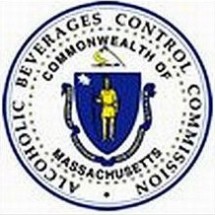Law Offices of John P. Connell, P.C.: In February 2017, the ABCC released its decision In Re: Rose Garden Restaurant and Lounge (February 3, 2017), wherein the ABCC found that the licensee restaurant committed no violation of 204 CMR 2.05(2) (permitting an illegality on the licensed premises) or M.G.L. c. 138, § 69 (sale or delivery of an alcoholic beverage to an intoxicated person). This decision was largely reached by the ABCC through application of the “hearsay rule,” a rule of evidence traditionally just used in courts of law.
In summary, the Upton Police responded to the scene of a motor vehicle accident where there were multiple severely injured occupants. While at the accident, an Officer attempted to question the person who allegedly caused the horrific car accident, but he did not respond. The Officer smelled an odor of alcohol on his breath and noticed his eyes to be glassy and bloodshot. While at the scene, the Officer received information that this individual had been at the Rose Garden Lounge just prior to the accident.
Approximately two hours after the Officer arrived at the scene of the accident, he went to the Rose Garden Lounge with an RMV photo of the alleged intoxicated person. There he interviewed the bartender on duty who was able to identify the individual. The Officer also interviewed four patrons who had observed the individual while inside and leaving the Rose Garden Lounge. Based on the Officers interviews with these patrons, he determined that the alleged intoxicated person was “speaking loudly, using profanities, hanging all over and hugging his friend, staggering while walking to the men’s room, and banging into a pool table, furniture, and a doorway threshold.” Each of the patrons completed written statements at the Upton Police Station the day after the accident, but they did not testify at the ABCC hearing. Moreover, the bartender did not appear or testify at the ABCC hearing.
To prove a violation of M.G.L. c. 138, § 69 (sale of an alcoholic beverage to an intoxicated person), there must be evidence to show: “(1) that an individual was intoxicated on the licensed premises; (2) that an employee of the licensed premises knew or reasonably should have known that the individual was intoxicated; and (3) that after the employee knew or reasonably should have known the individual was intoxicated, the employee sold or delivered an alcoholic beverage to the intoxicated individual.” See Vickowski, 422 Mass. At 609. “The investigators may prove that an individual is intoxicated by direct or circumstantial evidence or combination of the two. Id.
In this case, the ABCC was not presented with any eyewitness or direct evidence in regard to the events that gave rise to the license violation against the Rose Garden Lounge. Rather, the Officer went to the licensed premise as a result of information conveyed to him at the scene of the accident, and collected information from patrons that did not appear and testify at the actual ABCC hearing. There was therefore no eyewitness or direct evidence as to how many alcoholic beverages the alleged intoxicated person consumed, and no testimony involving his behavior was in line with a state of obvious intoxication.
The violation against Rose Garden Lounge presented the ABCC with issues regarding the admissibility of hearsay evidence and what should be relied on during enforcement. “A decision of a board that rests entirely upon hearsay evidence cannot be sustained, but decisions based upon hearsay evidence that is supported and corroborated by competent legal evidence have been sustained.” Moran v. School Committee of Littleton, 317 Mass. 591(1945). In this case, the ABCC found that Rose Garden Lounge was entitled to have the violation dismissed because there was competent evidence against it.
Even though the Officer in this case conducted a thorough investigation, the offering statements describing the events were such statements that constitute “hearsay.” Again, the ABCC was not presented with any witnesses with direct knowledge to satisfy the elements necessary to support a violation of M.G.L. c. 138 §69. “The Commission only heard testimony from Upton Police Officers regarding statements made to them at the scene of the accident, over the telephone, and at the Upton Police Station, the day following the accident.” “Evidence of apparent intoxication, at some point later in time does not, by itself, suffice to show the patron’s intoxication was evidence at the time the last drink was served.” Douillard v. LMR, Inc., 433 Mass. 162, 165, (2001).
All of the evidence offered to prove the alleged intoxicated person’s consumption of alcoholic beverages while inside the Rose Garden Lounge was determined by the ABCC to be “hearsay”. “If the pertinent evidence is exclusively hearsay, that does not constitute ‘substantial evidence’ even before an administrative tribunal.” Sinclair v. Director of the Div. of Employment Sec., 331 Mass. 101, 103 (1954). The ABCC found that all of the evidence presented to prove a violation constitutes as hearsay and is not evidence that can be relied on to find a violation against the Rose Garden Lounge.
Dissimilar to the instant case is In Re: Goodbar (April 2, 2013), wherein the ABCC found the police report, while hearsay, was ‘inherently reliable.’ The ABCC reasoned, “the report contains detailed factual recitations of observations made personally by the reporting police officer,” who further testified at the ABCC hearing. The ABCC supported its decision by claiming the report was detailed by personal observations, not mere conclusions or general statements that mirror the facts in the instant case.
Taking the decision in Goodbar and Rose Garden together, one should conclude that although hearsay evidence will be accepted by the ABCC into evidence, hearsay evidence alone shall not be enough to sustain the burden of proof required to find a violation against a licensee, as that evidence alone does not constitute “substantial evidence” as required by the ABCC.
© Law Offices of John P. Connell, P.C.,
Submitted by Jacqueline Sparaco
March 2017

